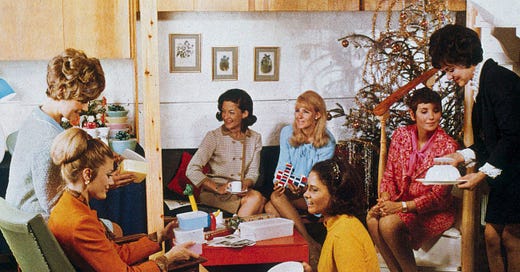The Future of Work for Women
It’s no secret that women’s economic empowerment will be a massive driving force behind global development and sustainability and with the drive to close the Gender Pay gap over the last few years, we can already feel the beginnings of that change.
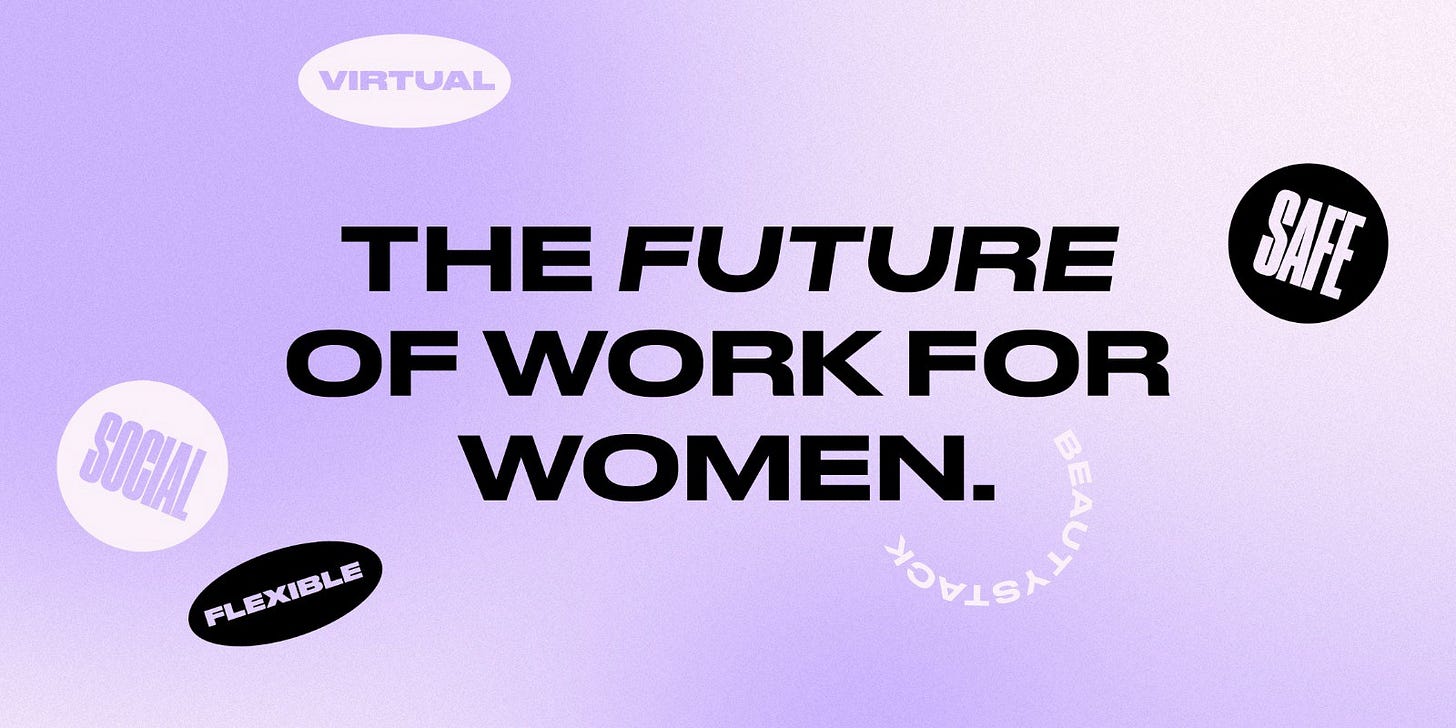
But despite some progress, globally, 2.7 billion women are legally restricted from having the same job choices as men. Whereas men’s unemployment stands at 5.5%, women’s is at 6.2%.

As the impending recession looms, it will be critical to ensure that women have more opportunities to work and take ownership of their careers. Educated and empowered female entrepreneurs are a force of good for the economy as a whole. And now is the perfect time for all of us to seriously think about unlocking productivity for women worldwide.

Haircut in Beijing
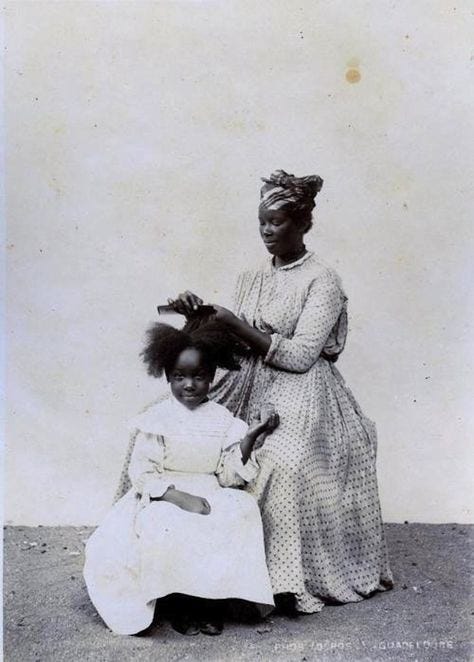
My business, Beautystack, was founded on the core belief that beauty services are the ideal avenue for a new creative class of empowered, female entrepreneurs. While other tech platforms built on the gig economy have increased job opportunities in particular for migrant men — think Uber etc, they aren’t necessarily the most suitable environments for women. So I set out to make one.
This means acknowledging what the modern working woman needs to thrive; a platform that provides decent work opportunities for women.
And for me, the future of work for women — in the beauty industry and beyond — centres around four key things: being flexible, virtual, social, and safe.

1. Flexibility
This one’s relatively simple. Women in work should have the flexibility they need in their schedules to suit their individual obligations, be it childcare or other familial responsibilities.
Flexibility in the workplace can take many shapes and forms, whether it’s offering off-peak working hours, remote working, or just being understanding when something comes up and needs taking care of straight away. One of our Beautystack Users, Debbie Marangos decided to work from a salon she built in her garden, so she could be near her twelve children. Beauty was the best career for her.
At this time, alternative working hours has moved past being just about gender. With COVID-19, every business is finally taking a long, hard look at their flexibility for everyone. The pandemic has shown first-hand how gender equality begins at home, with the caregiving. Our working lives are currently in flux, and as business owners, we need to be open to our team’s needs and personal situations.

I carried my son everywhere in the early days of WAH!
2. Virtual
Back in March, a friend of mine based in Shanghai told me about the incredible rise of virtual beauty services in China following the lockdown due to COVID in Wuhan. While I was sceptical about the longevity of virtual life, we kicked into gear by supporting our pros to create online masterclasses covering everything from make-up tips to nail art classes.
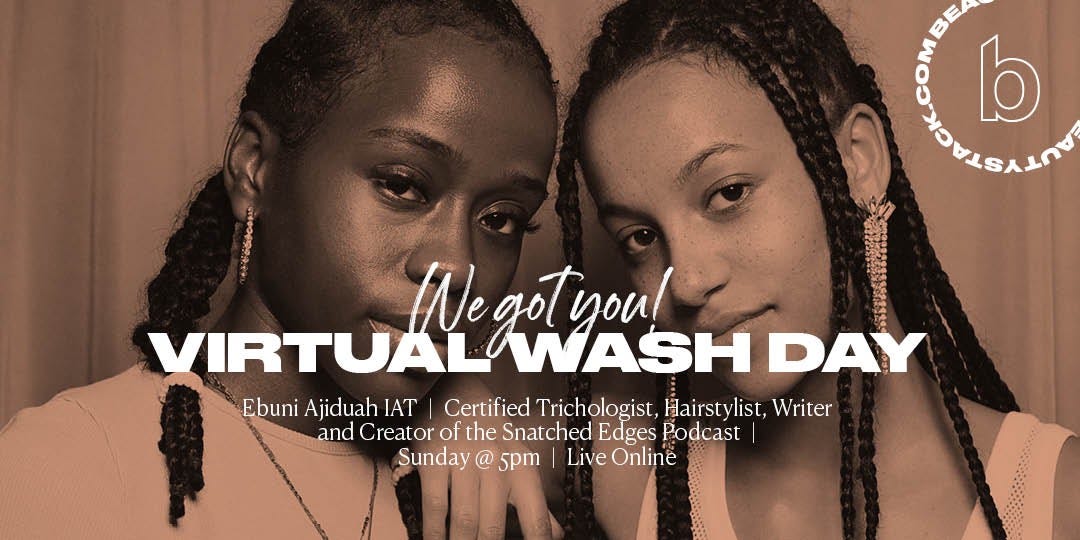
Just one of our Online events that we coordinated for our Users.
The response was overwhelming and made me wonder if Beauty Professionals would ever go back to the salon again. We did a whopping 54 events over lockdown with around 4000 paying attendees.

Virtual services are the first time ever that professionals have been able to overcome the glass ceiling on earnings that come from being able to only do one client per hour. The future of work for women undoubtedly involves selling virtual events, in your own time, in the safety of your own home, to a potentially infinite number of clients, all over the world.

Anouska had people sign up from 24 countries for her Virtual Nail Art Masterclass.
3. Social
Society right now is a lot more urban-focused and, by 2050, 70% of people around the world will live in cities. Job opportunities and a want for more varied life experience brings more and more people to urban centres. Which often means we’re away from our family, friends, and loved ones. So what happens when we’ve just moved to a big city and, frankly, know no one? Quite often, it’s the Beauty Professionals who fill these relationship and community gaps.
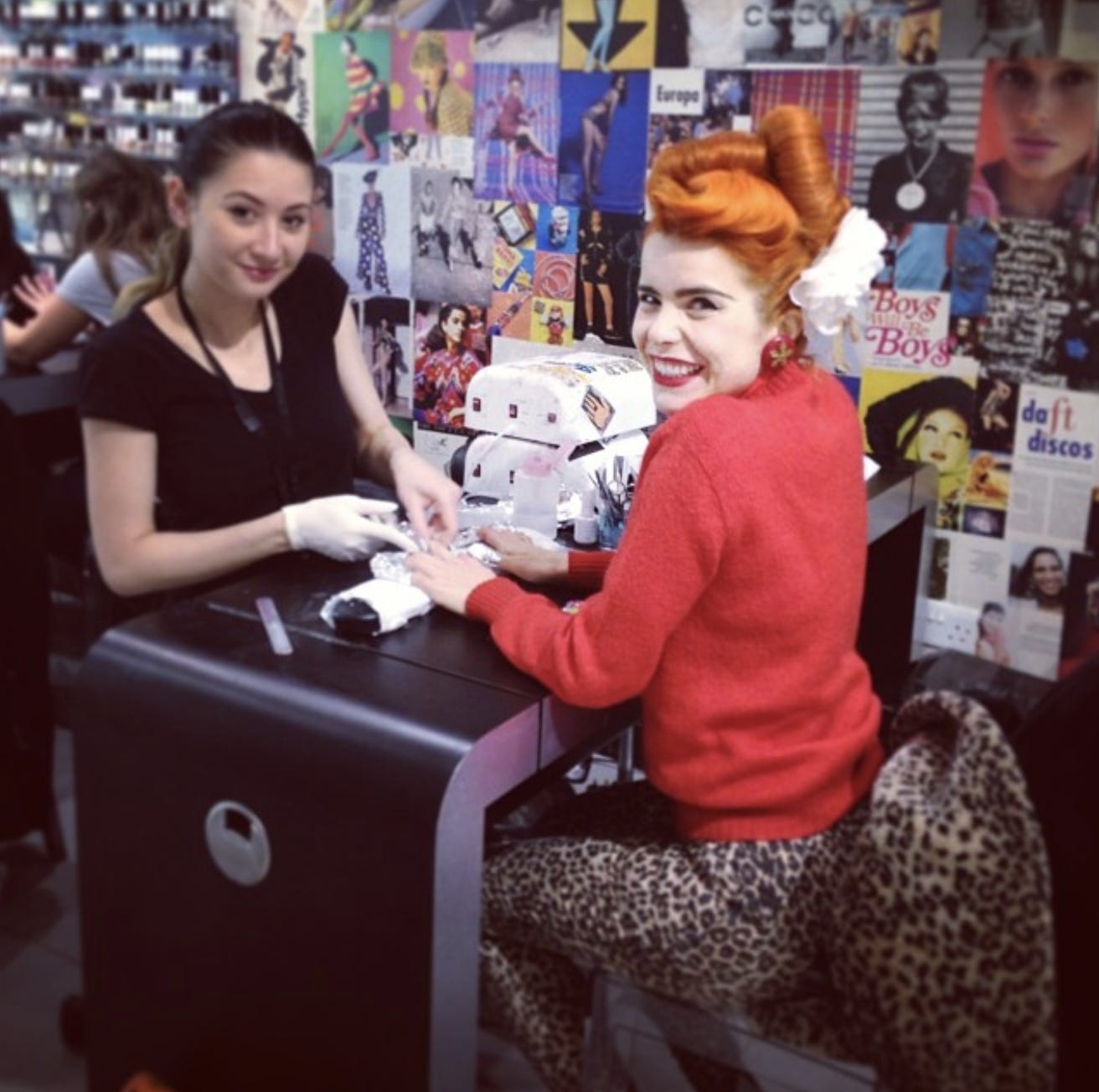
The excitement from Paloma Faith!
I realised early on with my own nail salon WAH Nails, that our success was built on acting as an informal community centre rather than simply a salon. We held events, talks and workshops for our Clients and became like family.

I let social impact organisations use the salon space from Day 1, like Hollaback, an anti-street harassment initative.

A Zine workshop in the WAH Soho salon.
It’s why hairdressers are 10th on the list of most trusted professions, standing at 8.4% — above accountants and lawyers. They are a trusted confidante, sounding board, and a bond you’d otherwise lack in the cold, corporate city life. In terms of loneliness and mental health, people want to connect, and beauty services provide this much-needed opportunity for authentic, warm connection.

New York branch of Lelia College (Madame C.J. Walker founded the college in Pittsburgh in 1908 to train African American as “hair culturist”, expanding to branches nationwide) — Museum of the City of New York, The Byron Collection.
Two of my favourite companies are Tupperware and Avon, both giving women an instant business and social connections. How do we digitise the female power seller today?

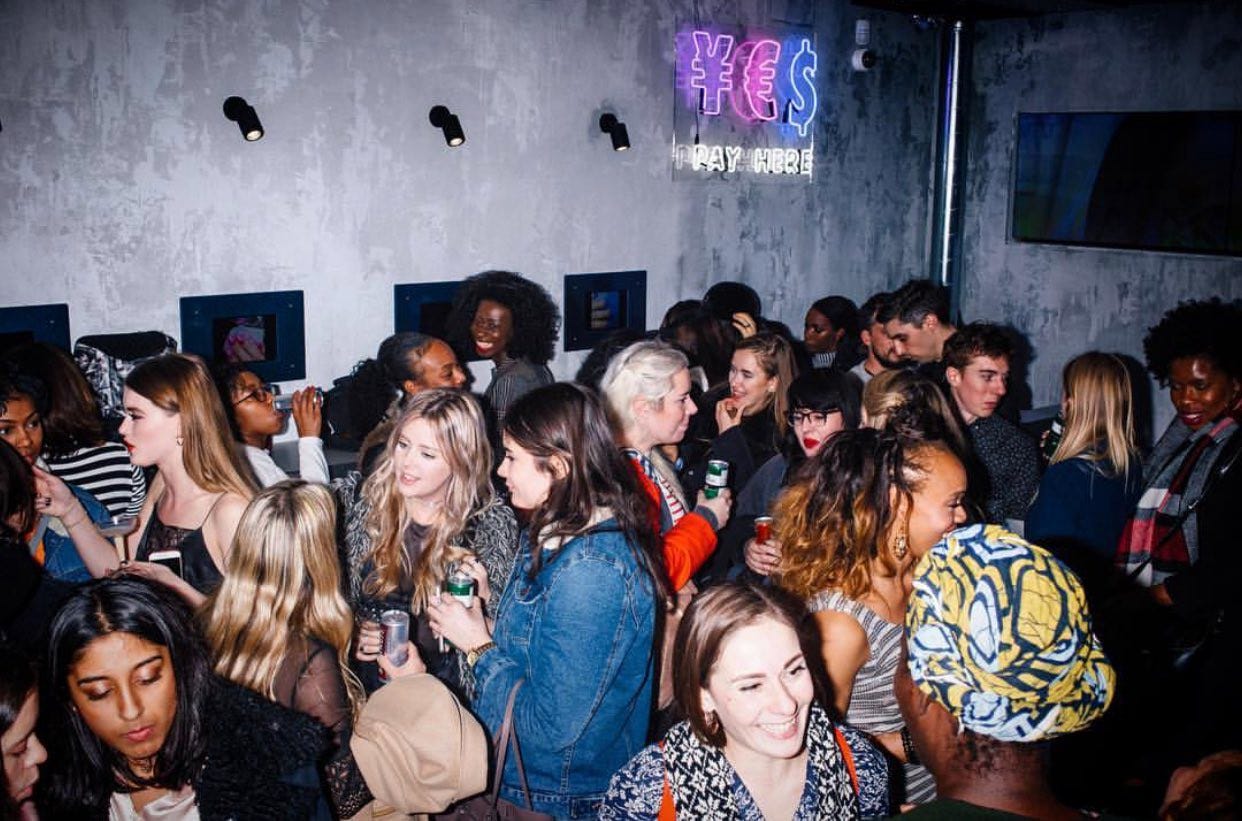
Client Party at WAH Nails Soho
4. Safety
Being a woman in 2020 is still a dangerous business. While both private and public spaces still pose huge safety risks, part-time, low paid work can be a daily battlefield. Anyone who has been a young woman in hospitality has felt the general performative objectification that comes from serving the general public. From sexual harassment to having to get public transport home alone, your work makes you feel like you have to constantly look over your shoulder. YouGov reports that one in three women regularly take steps to avoid being attacked with almost half said they “always” or “often” felt unsafe when walking alone at night (46%). By contrast, only between 11% and 13% of men felt the same. I loved being a waitress and a bartender while I as a student, but you had to develop very thick skin and be on constant high alert both during and post work hours. It was exhausting.
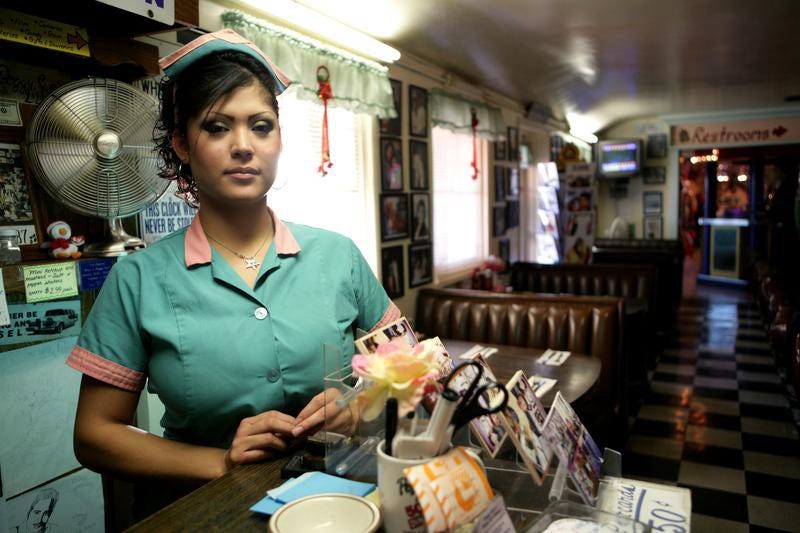
Even in retail, you’re at risk. The recent reports of what it’s like to work at even some of the most feted brands give an insider view of the female work experience. There has to be another way for young women! Working privately and typically one-to-one — such as in beauty, wellness, and coaching services — creates a different dynamic between the customer and the business and allows for deeper relationships and mutual respect. This is a safer career choice.
With Beautystack, I’m allowing women to work flexibly, on their own terms, and to choose the clients they want. On the app, you can see a client’s profile before going to do their treatment. It puts control and safety back into the equation.
But will the Government support Women wanting to enter the Beauty Industry?
Beauty services, for me, provide flexible, virtual, social, and safe work that allows women to express themselves creatively.
But often, beauty services fall through the cracks and aren’t recognised alongside other similar industries. The UK Government has its Creative Industries list. But beauty’s not on it. Meaning it doesn’t get funded or support and as we saw during lockdown, Beauty Pros all too often get left behind.
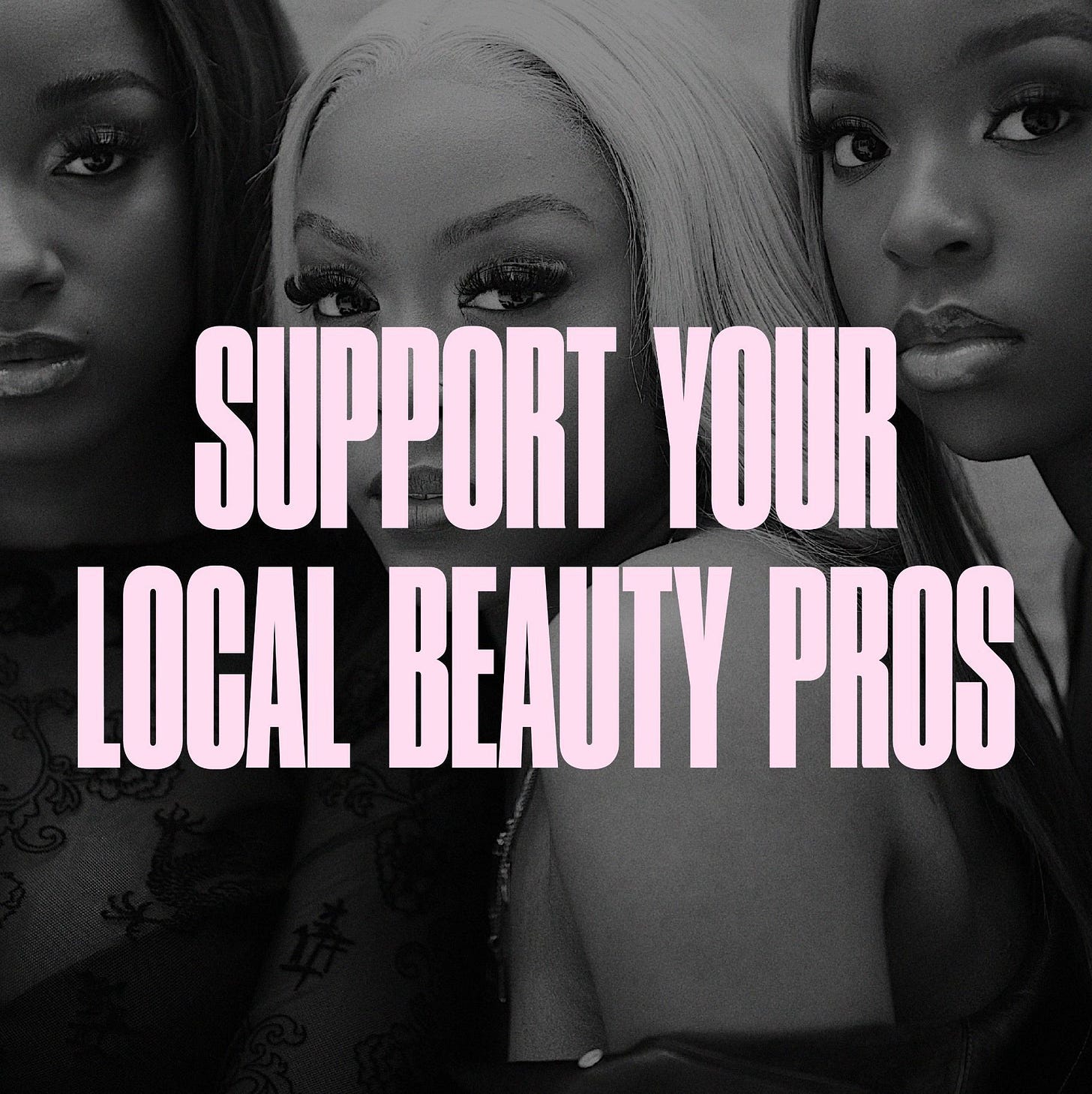
Beauty falls between the cracks of healthcare, therapy, and art. It’s not any one of these directly but sometimes a Beauty Provider will find themselves playing the role of a GP, an artist, and a therapist — maybe all — in one appointment. But they don’t neatly fit (and aren’t always specifically trained) into any one group and therefore don’t get the backing, funding, or respect associated with any of them.
This summer, during lockdown, the beauty industry felt that the government let them down. Why won’t they look after us, the way we look after society?
With the current recession, we will be a nation of shopkeepers and entrepreneurs. People will do whatever it takes to earn money. And I want Beautystack to be a critical player in keeping a micro-economy of beauty services alive and thriving

What about The Future of the Beauty Services Industry?
This pandemic has also highlighted the inequities in terms of those who are employed VS self-employed, with many Beauty Pros unable to continue working in their salons. For our £100 billion global beauty service industry, the future is about empowering independent people rather than trying to own them. This is why we are not an on-demand platform with an army of professionals wearing our logo on t-shirt. We don’t take a huge chunk of commission and we don’t manage our Pros directly. This generation of practitioners want to build their own brand, under the shelter of a trusted community, and we are here to help them thrive in their own way.

Leonard McCombe/Getty Images
I envision Beautystack being the world’s biggest salon, just without any set locations. Every single one of our Beauty Pros is an independent, niche specialist. They benefit from the brand, credibility, and authenticity of Beautystack. But we’re also empowering the workforce to move forward independently, serving as an advocate and voice for them at the beginning of their journey. The beauty industry is one of the most diverse and democratic industries around. Let’s make it even bigger!
Even if you’re not in tech, think of how you can power Beauty Pros rather than be their boss. This might mean turning your existing salon into a co-working space, or selling classes to other Beauty Pros on how to level up your beauty business. For all those salon owners who need to recover from 6 months of no sales, now is the time to be innovative.

Peckham Palms is an incredible co-working space for Afro hair stylists in London.
Summary
The future of work for women is about providing a comfortable, empowering, and inspiring space for them. On the basic level, it’s about flexibility, safety, virtual, and social bonds. But it’s also about empowering women to forge their own path, for the good of the economy, society, and — most importantly — themselves.

With Beautystack, I’m passionate about securing women their rightful place in the world of work, entrepreneurship, and gig economies. After all, a stronger economic future for all starts with a stronger economic future for women. If you’re interested in backing a more equal, diverse, and powerful economic future, message me on the Beautystack App @shar
This post was originally published on Medium.

